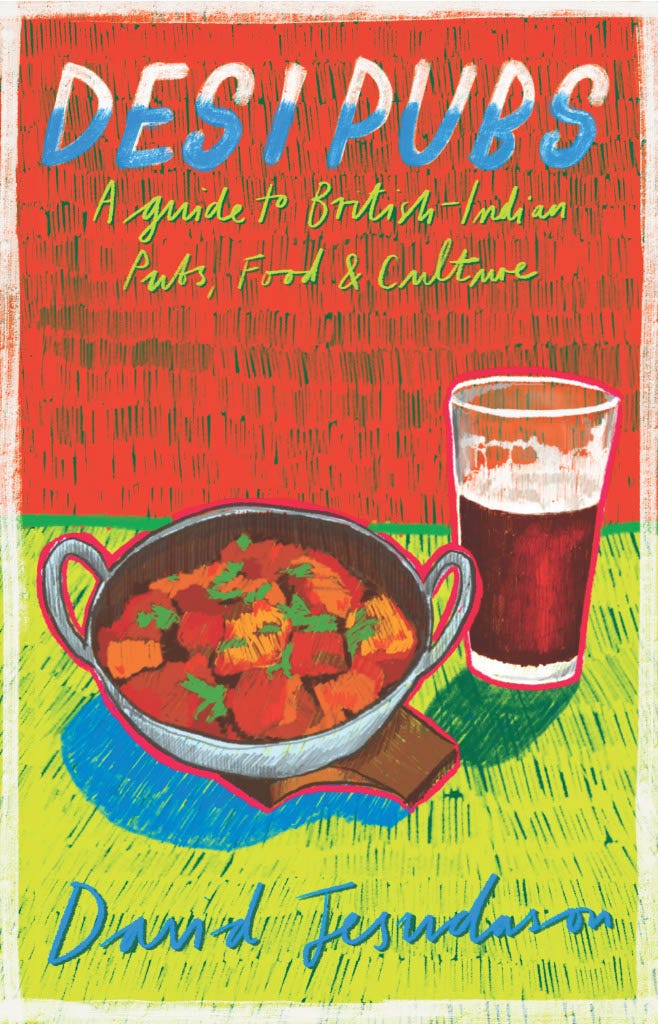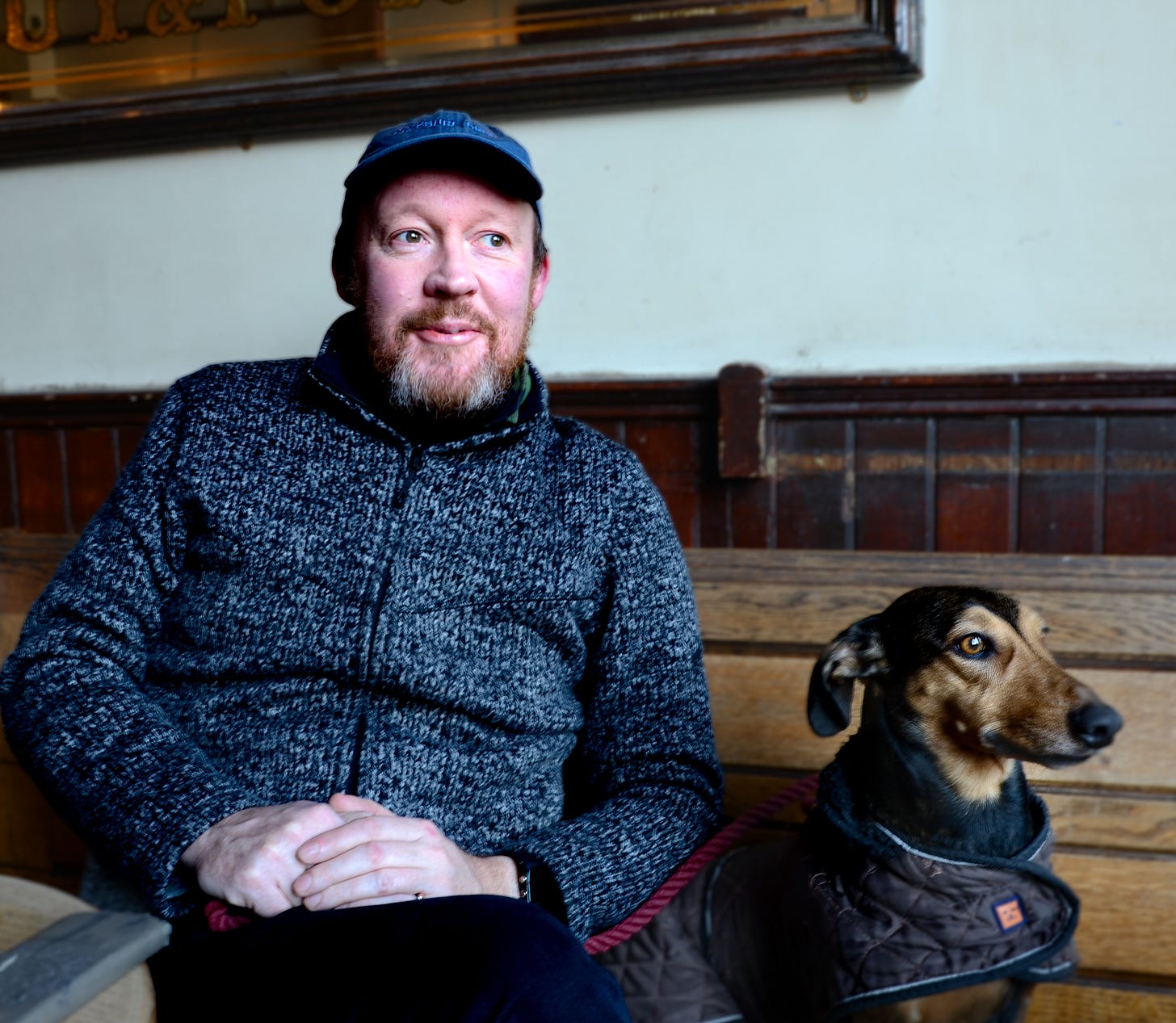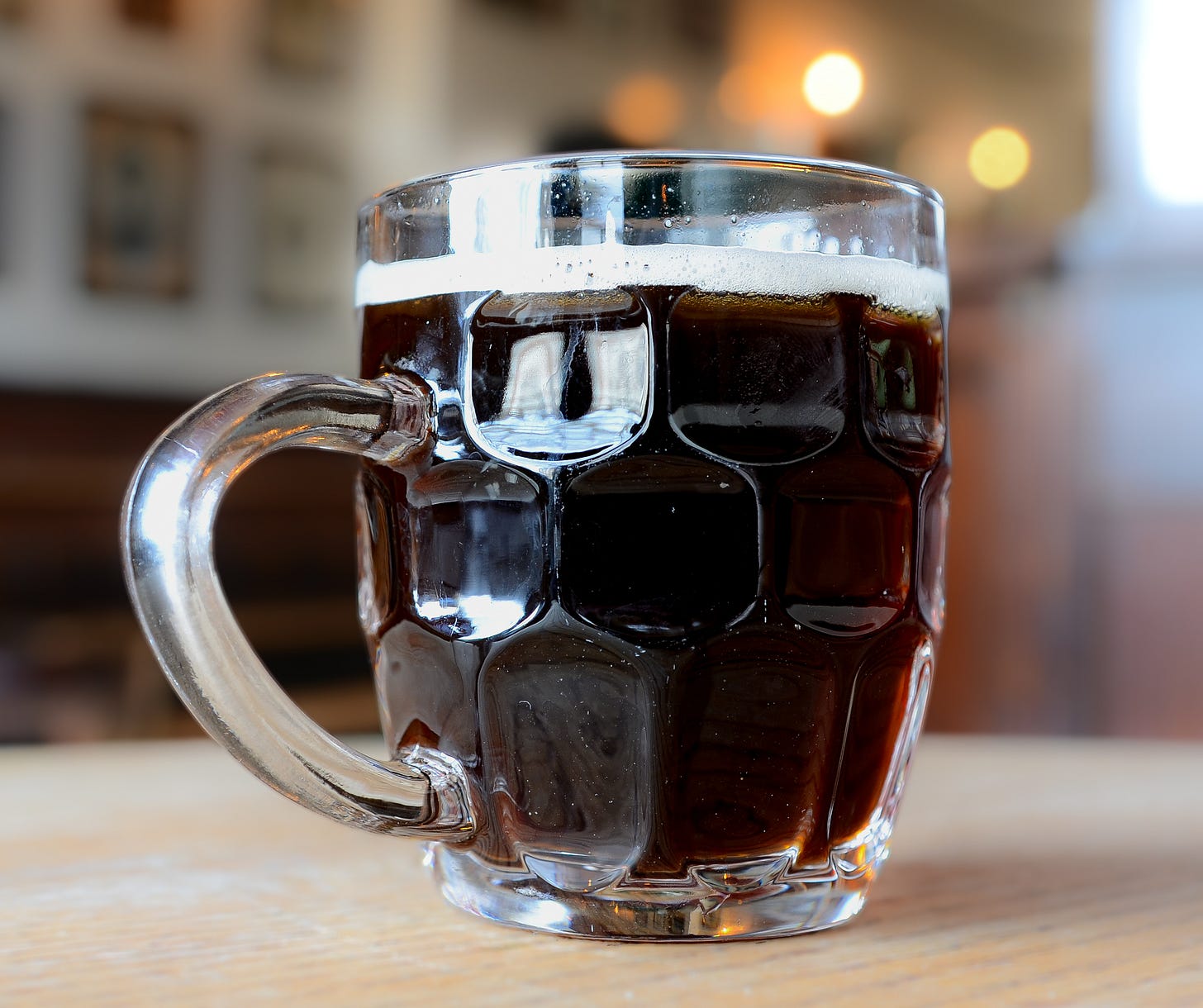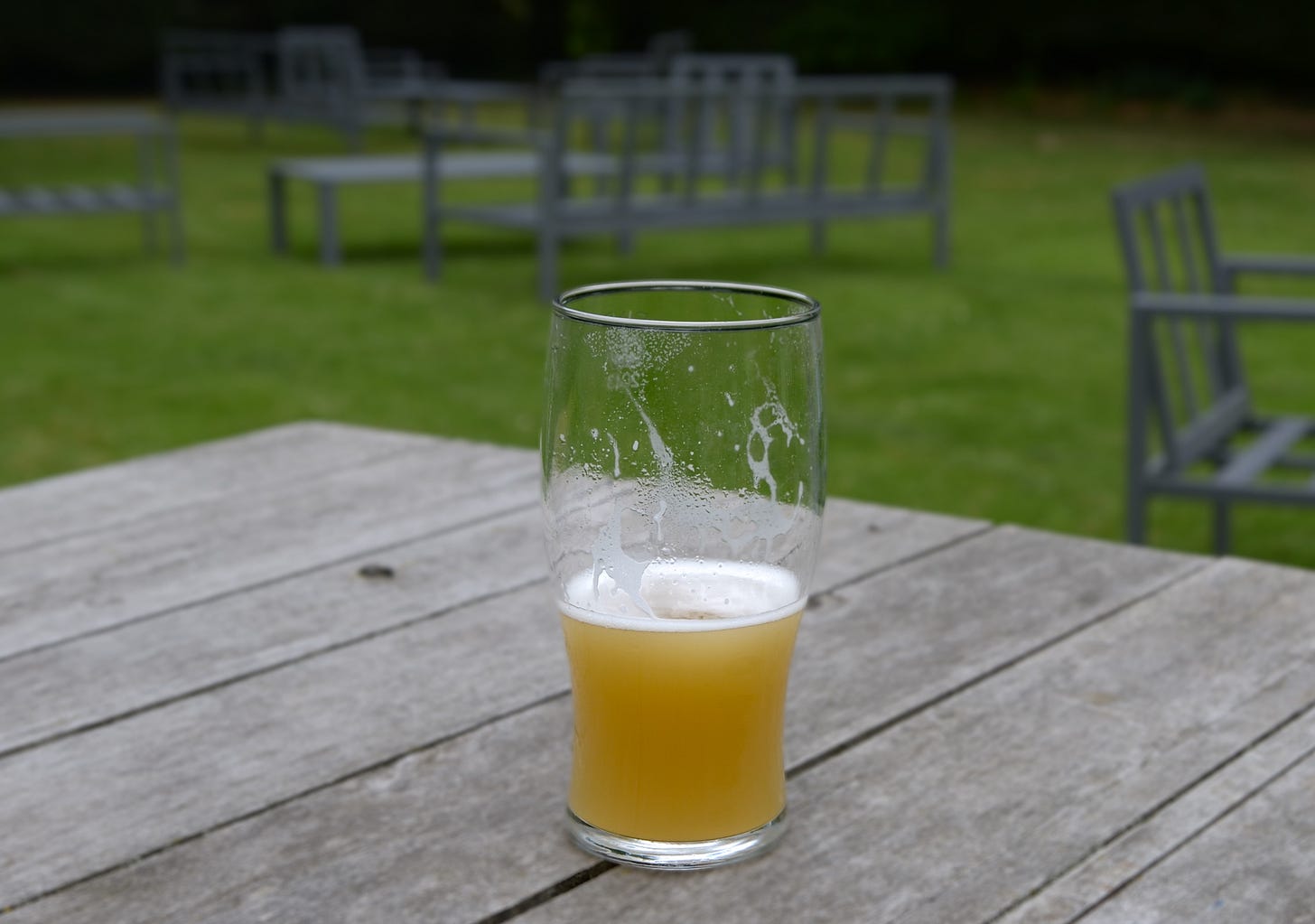Where are those happy days? - the Compasses, Kent
Publican Ben Duckworth on the sad demise of a country pub in an affluent area which had to shut due to the current economic climate
You can pre-order Desi Pubs - A guide to British-Indian Pubs, Food & Culture here
Occasionally I think it’ll be a good idea to bring in voices away from the desi pub scene if they have an urgent or prescient story to tell and this is why I moved this article forward and pushed one on the Horseshoes in Southall to next week.
It’s also why a weekly newsletter is so important because the commissioning and publishing process of most of the publications I work for can draw on for months. In most cases this is the nature of the job with so many freelancers competing for ever diminishing space (and fees) but the outcome doesn’t often lend itself to topicality.
Today’s interviewer spurred me into action by tweeting about the difficulty he was facing as a publican because of rising costs, energy bills and people’s lowering of incomes. He felt that this was an issue that beer writing was largely ignoring - and, in my opinion, he has a point.
Hospitality’s battle to keep its head above water in the current economic situation is not something that lends itself to being detailed by a lot of drink writers. People who cover hospitality in general are often from very different backgrounds to the workers they will meet in pubs, bars and restaurants. Sadly, beer writing - like all of journalism in the main - is a white middle class pursuit because of the aforementioned diminishing space (and fees). (92% of journalists are white, according to the NUJ)
Plenty are fine writers but in general they concern themselves with the taste of beer rather than mentioning how everything is turning sour around their pint. And this is always going to be their comfort zone if they are from a background that has meant they have never had to work a busy bar or wait on a table. They’re always viewing their glass through the prism of being a privileged consumer - and that’s not to say I’m wholly exempt from this charge.
Many even see their sole role as promoters of the beer industry and, more critically, to tell it like it is is somehow negative - they also often feel the same about racism or any other ism. This isn’t journalism or what we were gifted to do and if people, like today’s interviewee, are clamouring to have the truth told then food and drink writing needs to change. (The lone voices that have covered this issue, though, have done so with clear-headed purpose, such as Katie Mather here.)
That’s not to say that beer writers shouldn’t be writing articles that make people yearn to be in pubs but what’s happening in the moment shouldn’t be played out on social media, while journalists bury their head in their hands.
Rmember that piece I did on the cost of a pint? That was six years ago, and I'm currently updating it. Here's the cost of just the ingredients, that's just over a 60% rise in cost. If price over the bar had gone up the same, a 4% pale would be £5.80 as standard by now.And this current economic situation isn’t confined to a certain type of pub - every business is feeling the squeeze - even the ones that are lovingly detailed by many publications. Today’s interviewee even believes that an industry source estimating that 25% of pubs will close in 2023 is conservative.
In my experience he might be right. It has affected desi pubs with their big kitchens, numerous chefs and high energy bills. One publican in the West Midlands admitted the price of charcoal kept rising and he buys 10-12 big bags a week. He has to absorb the costs too as many of his customers wouldn’t be able to afford to dine out if he increased the prices accordingly.
It’s also impacted affluent areas as this newsletter will show.
Today’s interviewee admits he made mistakes and as he enters the process of winding up his business he feels a sadness at how things turned out. If he can take away one thing from this article, though, it’s this: It wasn’t your fault, Ben.
The original email wrongly stated the Compasses’ energy bills were £400 a month. It’s currently £400 a month.
“I see it as a failure on my part,” says Bristol-born Ben Duckworth, publican at the Compasses in Kent.
“I’m not looking to blame anyone else for the failure of the pub. Lucy [my partner] has been coaching me and saying ‘you cannot blame yourself’. But I do.”
Despite the content of our conversation I’d say Ben is relatively upbeat in tone as we’re warmed by the fire on a cold January day at Kentish Town’s Southampton Arms and he even has me in stitches when he takes one sip from his pint of mild (Exale Brewing’s Mob Rules) and says “Ooh, that has everything.”
Ben, though, like his dark beer, has had everything to deal with and he’s earned a right to feel down because he’s really suffered during the pandemic.
In the first wave he caught Covid which led to double pneumonia and pleurisy but he was never taken to hospital because emergency rooms were swamped and contact with infected patients was being minimised. His only dealing with medical staff was his GP who phoned him every day and gave him a device to measure his breath.
The fallout from this prolonged illness meant he had long Covid for eight months and would need to rest for a few hours after carrying a case of beer. To recuperate he decided to leave London and head for the seaside, running a bottle shop in Broadstairs on the Kent coast which he readily admits was a huge mistake.
“It was obvious straightaway,” he says. “That I misjudged it. We were supplying two litre growlers of hoppy pale ale and they just wanted pints of Shepherd Neame.”
The high point of this venture was when he met a restauranteur - also called Ben - who shared his passion for good beer. They decided to go into partnership at the Compasses, which had become a foodie destination much to the annoyance of regular drinkers who lived in the pub’s surrounding villages outside Canterbury. The then current publicans were leaving to open a restaurant in Tunbridge Wells after nine years and this looked like the answer to all his problems.
“You’ve never seen a more beautiful location,” he says. “I fell in love with it.”
When I was waiting for Ben to turn up I chatted to Nick Bailey, publican at the Southampton Arms, about the political views his punters hold. The default of this pub is very left-leaning but a few Tories come in and annoy the locals - this middle-aged pair who often slouch near the piano can be the worst culprits.
They’re in the minority though and the conversation here is rarely problematic and reassuringly empathetic - for example on this visit I talked to a local about his and his father’s autism.
When Ben speaks about the visitors to his pub it’s a different story. “A lot would sit there talking horseshit,” he admits.
“There was a group of women at the bar saying incredible transphobic things and I broke in and said: ‘I’m really sorry but even if this doesn’t offend anyone else in the pub what you’re saying isn’t acceptable to me’. The woman I said it to walked out and the rest of the group I don’t think I ever saw [again].
“But I don’t want them in my pub and I don’t give a shit about the lost trade.”
I’ve worked in pubs like this where the locals will repeat far-right newspaper headlines and false narratives become entrenched. In fact I told Ben about one pub in outer West London that I worked in where a customer - and apologies for this recollection if it offends - said the media were only interested in the murder of Damilola Taylor because “he was a cute-looking black kid.” That bile-spouting regular was a police officer.
The pub went along with this idea that anyone non-white was likely to be a criminal even though a few of the older locals had wives from places like Vietnam. There was one left-leaning guy who would read Private Eye, smile politely and drink in the beer garden alone. He didn’t have the energy to challenge hate-filled views but that doesn’t mean you shouldn’t try.
“People just show you who they are and they can’t help it,” Ben says. “I was having a chat with this guy about football and he was being perfectly reasonable then he said ‘have you seen that John Lewis advert? They have their quota of blacks’.
“I was talking to you for the last half hour and you’re a prick! With that person I was not just going to say ‘that’s bollocks’ and instead I said ‘I need you to quantify what you’ve just said and talk about it. And we did. At the end of [the conversation] he said: ‘You’ve got a point. I don’t know where that came from’. And that was a victory.”
It started to go wrong at the beginning of Ben’s tenure at the Compasses. His namesake business partner who was looking after the food left and despite the locals enthusiasm for it becoming a drinking pub it never became a craft or cask drinking destination like the Southampton Arms.
“The first thing I did,” he remembers. “Was go on the local WhatsApp group and say ‘I’m going to give your pub back. There’s [now] a little bit of bitterness from my perspective because a lot of people came down and said: ‘Thank God you’re here. All we’ve ever wanted here is a drinkers’ pub. And I’ll probably see them twice in 10 months.”
Then the current economic crash happened and there was no way Ben could make ends meet. He realised that food was one of the key reasons the pub was so popular but replacing the chef was really difficult and he was sent mediocre CVs demanding around £65K. He ended up cooking functional food himself such as dirty fries.
Ben blames himself for the food failure and somehow even thinks he could have worked harder to find a successful chef replacement (factors such as Brexit has made recruitment harder) but it’s the cost of living issue that was a wrecking ball to his business.
“Energy bills were unsustainable,” he says. “£400 a week. And all the suppliers’ prices went up because of the energy crisis. A lot of publicans are slagging off suppliers for increasing their prices but they’ve got the same pressures we’ve got.”
The exit is now being negotiated with Shepherd Neame, which is sad especially as Ben was a rare case of a landlord being allowed by the brewery to sell beers that weren’t part of its core range. And the knowledge he brought to the pub meant his choice of craft ales acquired a fanbase, especially for hazy pints like the one I had pictured above.
“One of the few success stories of my tenure,” he concludes.
During our conversation I realised that I did visit the Compasses in the summer after I visited a nearby pub called the Local that was being run by a British-Asian father and son team. I can see why Ben fell in love with it as it was a mixture of old and new with excellent beer being dispensed in a warm (and, due to his efforts, inclusive) environment. This is rare in a rural location and it was nice to not feel unwelcome in a village as a brown drinker.
It’s sad how it turned out at the Compasses and the only hope I can offer is that people realise that more stories like this should be covered so we can put more pressure on a government that has no empathy for Ben’s plight.
The headline is taken from SOS by ABBA as covered by Bristol’s Portishead where Ben hails from. It also featured in the underrated film adaptation of High-Rise, which has no real link to this article apart from the fact that I like the work of JG Ballard apart from that novel where the guy gets lost on a roundabout.
Next week, I’ll visit Southall, I promise!







